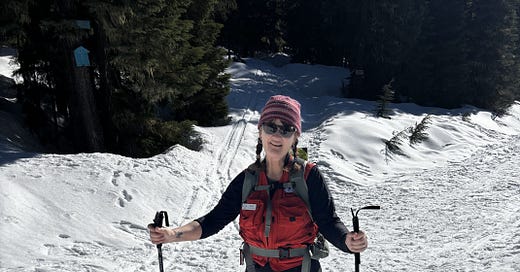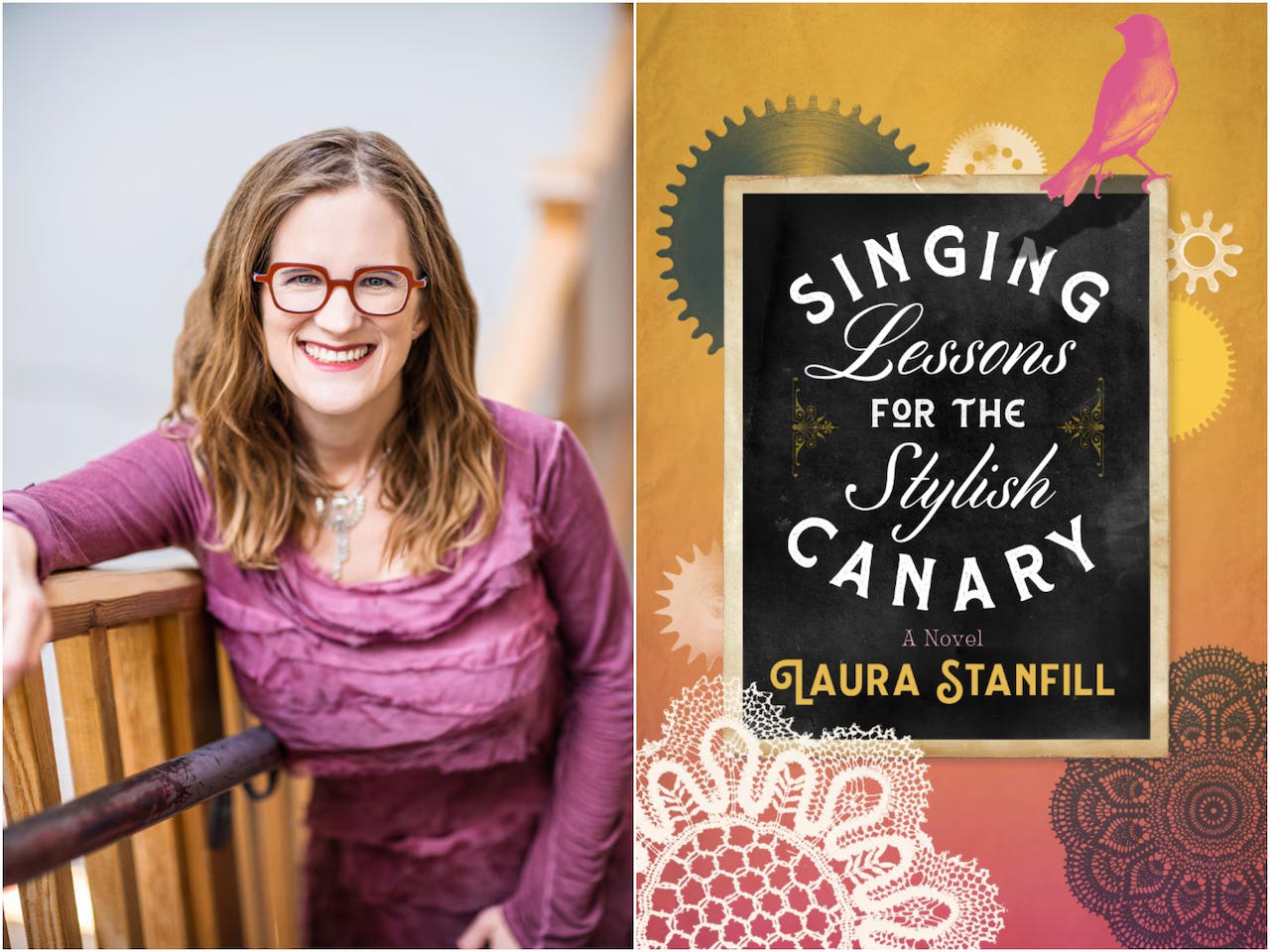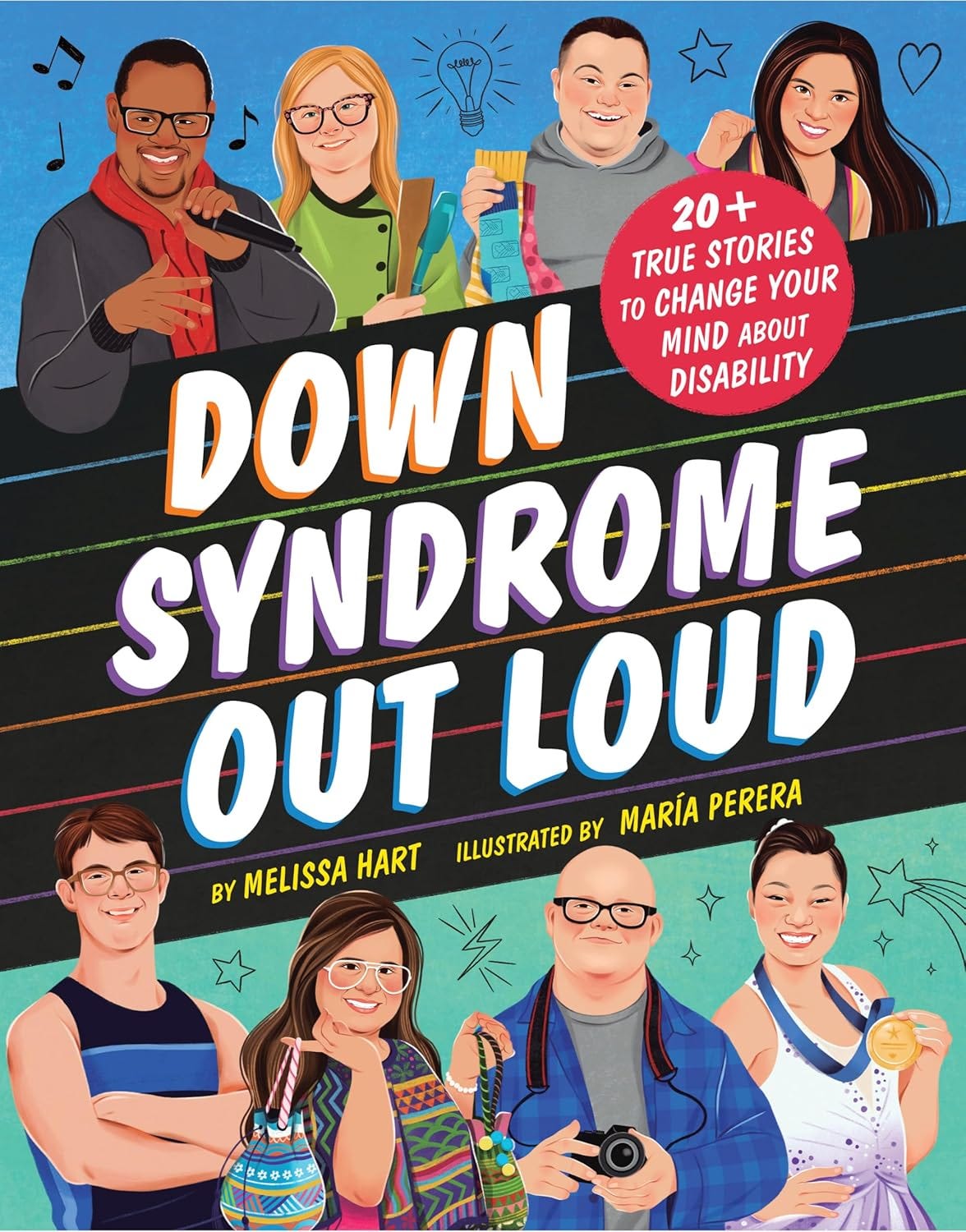April 1, 2025
Dear Writers,
Welcome to StoryCellar! I’m glad you’re here. I’m Oregon-based journalist and author Melissa Hart; I’m also a Creative Writing Instructor for the MFA program at Southern New Hampshire University, and I worked as Contributing Editor at The Writer Magazine for 15 years.
StoryCellar is a labor of love and literary citizenship. The basic monthly newsletter is free! This month, I’ll send paid subscribers a link to my short video course on how to write an elevator pitch for any book. Paid subscribers get access to my previous short courses, as well.
Want to become a paid subscriber? Click the button below!
Got Awe?
It’s a Survival Tool for Writers.
Writers, I’ll keep this brief. A man I’ve volunteered with at our local arboretum to teach kids about Oregon flora and fauna has the best walking stick I’ve ever seen. It’s five feet tall, and he carved it himself with intricate flowers and vines and animals. In big letters on one side, he’s whittled the word “AWE.”
Awe, to me, means happening upon a sight or sound or smell, a taste or tactile experience and meeting it with a sudden quickening of the pulse, eyes wide and jaw dropped and goosebumps up and down your shoulders.
It means a break from anxiety, depression, stress, politics. Even if just for five minutes.
You can cultivate awe. Really. Here’s my step-by-step method:
1. Turn off your screens.
2. Walk outside and notice what’s around you, deeply,
That’s it. Immerse yourself in the sensory details of your surroundings. But maybe it’s cold and wet or you prefer awe of the indoor variety. If that’s the case, then try this:
1. Turn off your screens.
2. Hang out inside and notice what’s around you, deeply.
Just in case you need a little literary inspiration for how to find awe, here’s this: (5) A Delightful Conversation with Ross Gay .
And this: Beautiful Things | River Teeth
And this: Tiny Love Stories
StoryCellar Interview: Laura Stanfill
I met Laura Stanfill years ago at the Willamette Writers Conference as she walked around the ballroom electrifying attendees with her smile. She’s one of the most generous, most exuberant authors I’ve ever met. She’s also the publisher at Forest Avenue Press. I caught up with Laura to talk with her about her new book, Imagine a Door: A writer’s guide to unlocking your story, choosing a publishing path, and honoring the creative journey.
Melissa: Your promo materials include this sentence: "There's no secret handshake or golden key in these pages, but Imagine a Door offers a more equitable and empowering prize: information delivered with gentleness." The writing/publishing life can be brutal, full of rejection and bad reviews and self-doubt. What role can gentleness play in counteracting the more negative aspects of working as an author?
Laura: I love this question so much, because it’s my life’s work—as a person, grappling with my own sense of self-worth, and as a publisher, reassuring my authors and helping them weather criticism. There’s so much we can’t control once we set our words free. Who will like them? (Who won’t?) Those feel like the hardest questions, but we also have to grapple with people not reading. Choosing not to engage with our work. Or not finding our work to consider reading it. I honestly don’t know which feels worse: a bad review or no review at all. I guess it depends on the day, the hour, the minute, and how strong my reserves of self-compassion are.
Part of why it all feels so brutal is the relentlessness of judgment. To get published, we have to submit our work. Which is really like submitting ourselves. Here, want to judge the depths of my soul? Even great responses can, at some times, feel super intimate and therefore scary. Did I really say that in writing? And now I can’t take it back?
When we approach writing from the perspective of what our work could be worth someday, we get in the way of our own creative process. Ideas are seeds and they need to be tended. Putting your writing into the world means the author needs to be hearty and ready for hardening, just like an indoor spring seedling getting ready for its outdoor home. That seedling doesn’t get dropped outside and left there; it’s exposed, gently, intentionally, to the elements until it’s ready to get planted. Otherwise it gets shocked, startled, hurt. I see this happen all the time with writers who cannot imagine the after; they do everything they can to make publication feel good, but then it’s totally out of their (our) hands.
It’s a little different when you submit an article or a book on proposal, but the pressure to create a wanted object, to sell a piece of your thinking, influences how we put those proposals together, what language we use for querying, and how—at last, sitting down to write—we keep ourselves on task and confident.
This toxic cycle of presenting our hard-earned words for judgment can be acknowledged and braced for, but it’s never easy. That circles us back to creating those reserves, building ourselves up for impact—the actual impact our work has on people outside our brains. If we can be gentle with ourselves, if we can slow down and celebrate finishing a good paragraph, or sending out a pitch, or even deciding where we’re going to send a piece next, those moments will bolster us. We can’t control how people react to our work—or if they even see it—but we can fiercely protect our tender hearts. We can print praise for our work and tape it to our desks for when we need a boost. We can meet with other writers and talk about the industry, separating it from our individual struggles and achievements.
Melissa: How might this book be of help to, say, emerging writers in their middle-aged years who've had a career and maybe raised kids and are finally getting some time to pursue a passion for creative writing?
Laura: This demographic is why I wrote Imagine a Door. I know so many middle-aged emerging writers who are focused, committed, and talented. They are also hungry for advice on how to get published and they are reading everything they can find about how and what and what next. In coming to the writer’s path after many other lived experiences, it can be challenging to believe in your early work enough to keep going. It’s easy to throw things in our way—chores and deadlines and such—and just as easy to step away from a draft of an essay or a story instead of revising. But our stories matter, and it feels good to write them, and nothing external (like rejections) should get in the way of us committing to ourselves. To our words.
What we tell ourselves to keep going, before we start getting published, needs to be uplifting and positive and self-supporting. A lot of the information out there is necessary and relevant, but there’s a lot that focuses on the how and not the inner path, i.e. the how it feels. Moreover, as we know about social media, only a scant fraction of the writer’s life appears on feeds, and most of that is the good stuff. The book deals. The conferences. The events. We don’t see the months and years it took, or the tears it took, so writers trying to find their way forward—even if we know better—tend to fall into the mind-trap of believing that everyone’s doing great. Except me.
I wanted to create a resource for us—the writers who, whether they’ve been writing all along or are just starting out—who feel like the publishing door is closed, with a MEMBERS ONLY sign, and we need a magic spell or a key to get in there and figure out what’s really going on. Because I am on both sides of the door, or the desk (pick your metaphor), as a writer and publisher, I decided to compile personal stories of my own and from more than 75 interview subjects. Imagine a Door isn’t just a how-to, it’s an I did this and this is how it turned out for me. It’s also full of my fears and rejections and stories about how I almost got book deals but didn’t.
Melissa: What one aspect of the publishing world would you change if you could, noting the ways in which that one aspect damages emerging writers?
Laura: II had intended to write about opting out of practices that harm other writers and anything that promotes Amazon over independent bookstores. I still feel strongly about both of those, but given the recent news cycle, I want to address the horrible implications of AI.
I found multiple books I’ve worked on in The Atlantic’s LibGen database, including my debut novel and a number of Forest Avenue titles. I’m horrified and outraged that my work and my authors’ work has been scraped from—somewhere? Our books aren’t available for free anyplace, so either publicly available excerpts were used for training purposes or someone bought copies to funnel into the database beast. I hope we’ll learn more as the Authors’ Guild and other entities are fighting this. I want to be clear, though, that as a publisher, I did not authorize the use of our books. These authors have worked so hard to create brilliant novels and memoirs, and it’s my great privilege to be part of the conduit from manuscript to actual book.
It's not okay for these imaginations, experiences, and turns of phrase to be turned into data without permission. For the purpose of training artificial intelligence to sound more intelligent. It’s outrageous and it impacts emerging writers because suddenly it feels like it's not safe to get published. So many articles, interviews, essays, and short stories have been taken without regard for copyright or ownership—not just full-length work.
I’ve always told writers not to worry about their content being stolen, because no agent or publisher could take ideas and keep their reputation, but this? It’s happening to all of us. And I don’t know any more than any other impacted author on how to stop it. Even though I’m in publishing, I’m as angry and astonished as everyone else, and as fired up to fight too. I’m just not clear, yet, on what that’ll look like.
If you’re an impacted author, here’s the Authors’ Guild action list.
Whether you’re an impacted author or not, please stop using AI that is trained on copywritten material, because using it is tacitly buying into the theft of original material.
Melissa: I used The Atlantic’s searchable database and found that AI had been trained on several of my books and essays. Thank you for letting us know about this!
Powell’s Books named Laura’s debut novel, Singing Lessons for the Stylish Canary, one of the best books of 2022. Find out more about her work (and see her super-cute shoes) on her website.
What I’m Publishing
Salon.com published my social commentary about how Department of Education cuts will affect students with Down syndrome, and wow, the fan mail and the hate mail were intense. Here’s a link to the piece; feel free to share it with everyone you know! Trump's big move in the war on education could strip students from schools | Salon.com.
Down Syndrome Out Loud: 20+ Stories of Disability & Determination publishes on June 3rd, and I’d be so grateful if you’d pre-order a copy. Email me and I’ll send you an autographed, personalized bookplate!
Where I’ll Be Soon
· April 15th—Keynote Speaker at Pacific Northwest Bookseller Association Spring Pop-Up in Sisters, Oregon.
· April 22nd— “Breaking Barriers; Life Beyond Labels.” Central Oregon Disability Support Network. Redmond, Oregon.
· May 20th—“Here’s How to Interview Anyone: Even a Cat.” Willamette Writers Eugene Chapter. 6 PM, Eugene Public Library
· June 13-15 “DOWN SYNDROME OUT LOUD: Superstars from a New Book Speak Up” and “SHARE YOUR STORY: No matter how you tell it, your stories change the world!” Family Café. Orlando, Florida.
· July 31-August 3. “Personal Essay at Platform” and “How to Write Op-Eds for Newspapers & Magazines”-- Willamette Writers Conference. Portland, Oregon.
I’m always happy to speak at your conference, library, classroom, or book club—in-person or over Zoom. Email me at melissahartsmith(at)gmail(dot)com.
A Few Cool Resources for Writers
· Rejection Letters from an Editor Who Is Going Through Some Stuff - Electric Literature
· Writing a Book? Going to Therapy Might Help With It--Vice
· (4) Experiment: Night Pages - by Mark Danowsky - Stay Curious
· (4) The DIY Audio Book Redux - by Christine Sneed - Bookish
The Measure of a Rich Life: Wendell Berry on the Key to Mirth Under Hardship and Delight as a Force of Resistance to Consumerism – The Marginalian
Residencies & Calls for Submissions
· Yes, friends, you can write all day in a cabin in the woods, and someone will deliver your breakfast and lunch in a basket. Apply here: Writers in Residence — Hedgebrook.org
· Narratively Magazine is looking for “remarkable memoir and reported stories, from pieces about love quadrangles, to lost-and-found soulmates, unthinkable sacrifices and bizarre romantic connections that defy all odds.” See the fun here: HUGE ANNOUNCEMENT! Narratively x Emma Roberts: The True Romance Writing Prize
· Motley Bloom is looking for pitches for their May digital theme: “confronting shame, stigma, and misconceptions. “What ideas about neurodivergence do you want to challenge? What new narratives do you want to write? Let’s hear em! We’re looking for essays, reviews, first-person narratives, and reported stories that bust myths and shatter misconceptions about neurodivergence.” Pays $300-$500, depending on the length. Deadline April 11th.”
· The Chicken Soup folks want poignant and/or witty stories about grandmothers! Check out the submission guidelines here: Possible Book Topics | Chicken Soup for the Soul
· Middle-aged women with something to say (and don’t we all have something to say?), look at this writing opportunity: A HerStories Project Call for Submissions
· Love the desert? Me, too. Have you written about it? Check out this prize given by Oregon’s poet laureate! Waterston Desert Writing Prize - High Desert Museum
· Jessica Orwig at Business Insider is “seeking personal essays from parents about low-stakes challenges (like being unable to help your child with their homework) that led to larger revelations (like realizing you can't always be there for them). Send pitches with headline and 3-5 sentences explaining your piece's focus to jorwig@businessinsider.com.”
Okay, that’s all for now. Thanks so much for reading, and happy writing!
—Melissa
P.S. Here’s a picture of me on National Ski Patrol, playing in the backcountry. Photo by fellow NSP member Julie Polhemus.







